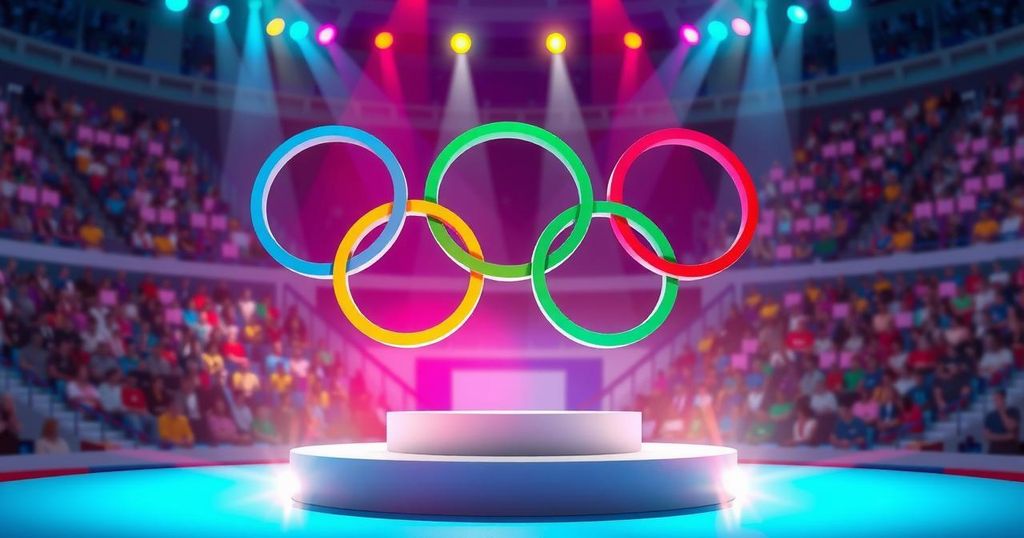On the eve of the IOC presidential election, Juan Antonio Samaranch downplayed his favorite status among candidates. The election includes Samaranch, Sebastian Coe, and Kirsty Coventry, who aspires to be the first female and African president. With voting imminent, candidates stress the importance of confidentiality and independent voting, with the winner set to lead through critical Olympic Games ahead.
On the eve of the International Olympic Committee (IOC) presidential election, candidate Juan Antonio Samaranch has downplayed his emerging favorite status. Speaking to reporters, he expressed admiration for the media’s predictions regarding election outcomes but stated, “I really don’t know” what the result will be. Known for its unpredictability, this election is viewed as narrowing to three leading candidates: Samaranch, Olympic gold medalists Sebastian Coe and Kirsty Coventry.
Kirsty Coventry, aged 41 and the sports minister of Zimbabwe, aims to be the first woman and first African to lead the IOC. When asked about the necessity for a female president, she affirmed, “Let’s create some change, let’s make sure that happens.” Currently, IOC membership consists of 109 exclusive members, which includes various dignitaries and former diplomats.
Speculation from seasoned Olympic observers suggests that although Coventry has gained traction as a preferred candidate for outgoing president Thomas Bach, she might lack an absolute majority in the first round of voting. Samaranch is expected to gather support in subsequent rounds as candidates are eliminated. Other candidates include Prince Feisal al Hussein of Jordan, Johan Eliasch, David Lappartient, and Morinari Watanabe.
The result of the election is significant as the winner is scheduled to assume office on June 23, coinciding with Olympic Day, marking the end of Bach’s maximum tenure of 12 years. The feelings and voting intentions of IOC members remain uncertain, which consists of influential figures such as royalty and former politicians worldwide. Prince Feisal alluded to this uncertainty, stating, “There is a lot of guesswork what is going on.”
While Coventry did not directly comment on Bach’s support, she emphasized that the campaigning process was transparent and called on voters to reflect on their values in relation to the candidates. Samaranch highlighted the importance of confidentiality in the voting process and encouraged members to exercise their voting rights independently, stating, “Each one has to make sure that they use that important right they have to vote however they feel.”
Sebastian Coe, a seasoned politician and athlete, maintained a low profile during the media interactions but remarked humorously that he was, “in good shape but it’s only lunchtime.” The tightly controlled campaign environment allowed for limited public engagement, with candidates delivering brief speeches in a single event earlier this year at the IOC headquarters.
The upcoming vote will determine the IOC’s 10th president, following Juan Antonio Samaranch Sr., who previously held the position for 21 years until 2001. When asked if his family heritage provided an advantage, the younger Samaranch responded, “Not in this moment.” He pointed out that the future challenges for the IOC include preparations for the 2026 Winter Games in Italy and the 2028 Summer Games in Los Angeles. Samaranch stressed, “We must concentrate (on) successful and relevant Olympic Games. The rest comes with success in the games.”
In summary, the IOC presidential race is nearing a pivotal moment, with Samarch, Coe, and Coventry emerging as the leading candidates. This election carries historic significance, potentially ushering in the first female and African president in the IOC’s history. As voting approaches, candidates emphasize the importance of confidentiality and independent decision-making among IOC members. The outcome will not only shape the immediate leadership but also set the course for future Olympic events, notably the 2026 and 2028 Games.
Original Source: abcnews.go.com






